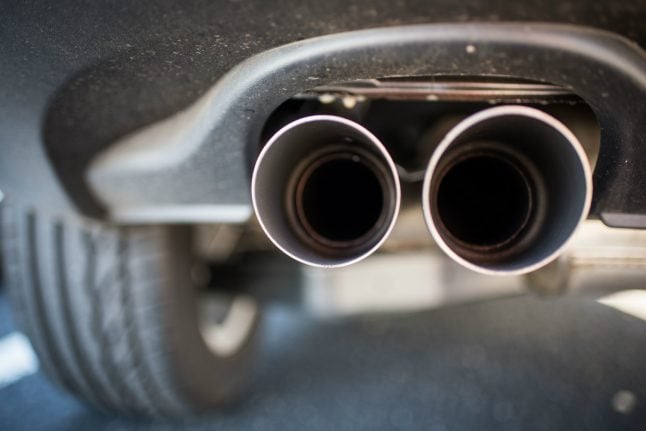MAN said in a statement that it had acquired shares representing five percent of Scania’s voting capital after trading had closed on Wednesday, giving it a total voting stake of 10.2 percent.
The shares were acquired at a price of 475 kronor each. And according to Swedish takeover rules, that would mean that MAN would have to revise upwards its overall takeover bid, which is currently hostile, to reflect that higher price, the German group said.
MAN had so far been offering 442 kronor per Scania share. On the basis of the new price, MAN would have to shell out €10.2 billion for all of Scania.
Auto giant Volkswagen, which has truck interests in Brazil, is Scania’s biggest shareholder with a voting stake of 34 percent, but also holds just over 15 percent of MAN.
The off-market purchases by MAN angered Scania, which has so far turned down the German company’s advances.
“According to reports in the market MAN has, in parallel to proposing friendly talks between the two companies, entered the market as an aggressive buyer of high-voting A-shares in Scania,” the Swedish group said in a statement published on its website.
“The board of Scania reiterates its rejection of MAN’s offer as it substantially undervalues Scania.”
On Thursday, Scania reported a 55.0-percent rise in third-quarter net profit to 1.28 billion kronor.
MAN has long been trying to get its hands on Scania, but would prefer to do so via a friendly deal.
In a statement on Monday, the German group said it was prepared to withdraw its hostile bid for Scania under certain conditions, which it did not elaborate on.
But both Scania and its second-biggest shareholder, Investor AB, insist that MAN’s bidding price is too low.
“Having consulted with our financial advisers, we believe that the offer substantially undervalues Scania in two principal respects,” Scania said.
“The earnings outlook for the standalone company is significantly above current market consensus. And MAN’s announced synergies materially underestimate the true synergy potential of a combination of Scania and MAN.”
Investor said that “while there are industrial merits to a combination of the two companies, the initial bid did not at all reflect the long-term value and potential of Scania”.
Investor estimated that “potential synergies in a combination of Scania and MAN are substantially higher than the 500 million euros per year indicated by MAN”.
Scania was “a strong company and well positioned to take advantage of anticipated high growth over the coming years in new markets”, Investor continued.
Volkswagen, also favours a friendly tie-up.
On Monday, VW urged both Scania and MAN to reach a rapid agreement on a tie-up that would create a new leader in Europe’s heavy trucks sector.
VW chief executive Bernd Pischetsrieder gave the two parties four weeks to reach an amicable deal.
But the Financial Times reported Thursday said that VW was losing patience with Scania and Investor over their refusal to talk.
And VW was prepared to back an attempt by MAN to buy up to 16 percent of Scania in a move that would give VW and MAN a combined majority stake, the newspaper said.
On the Frankfurt stock exchange, MAN shares were showing a gain of €1.09 or 1.62 percent at €68.43, making it the biggest gainer of the morning.




 Please whitelist us to continue reading.
Please whitelist us to continue reading.